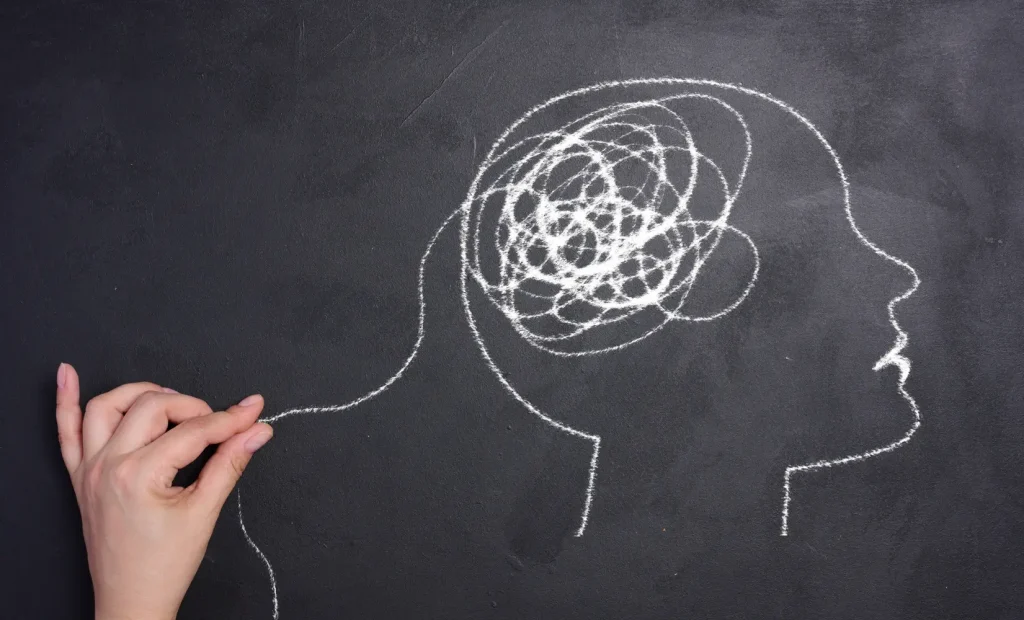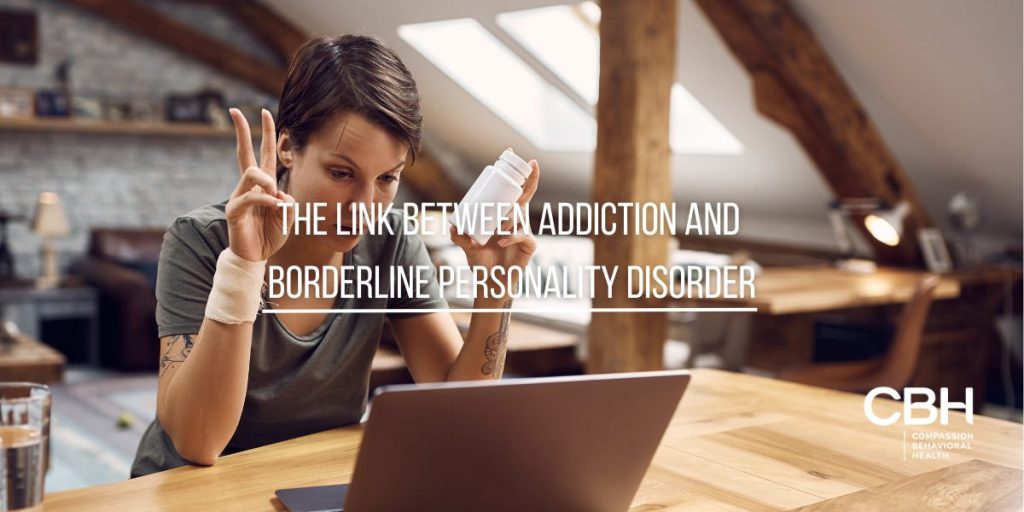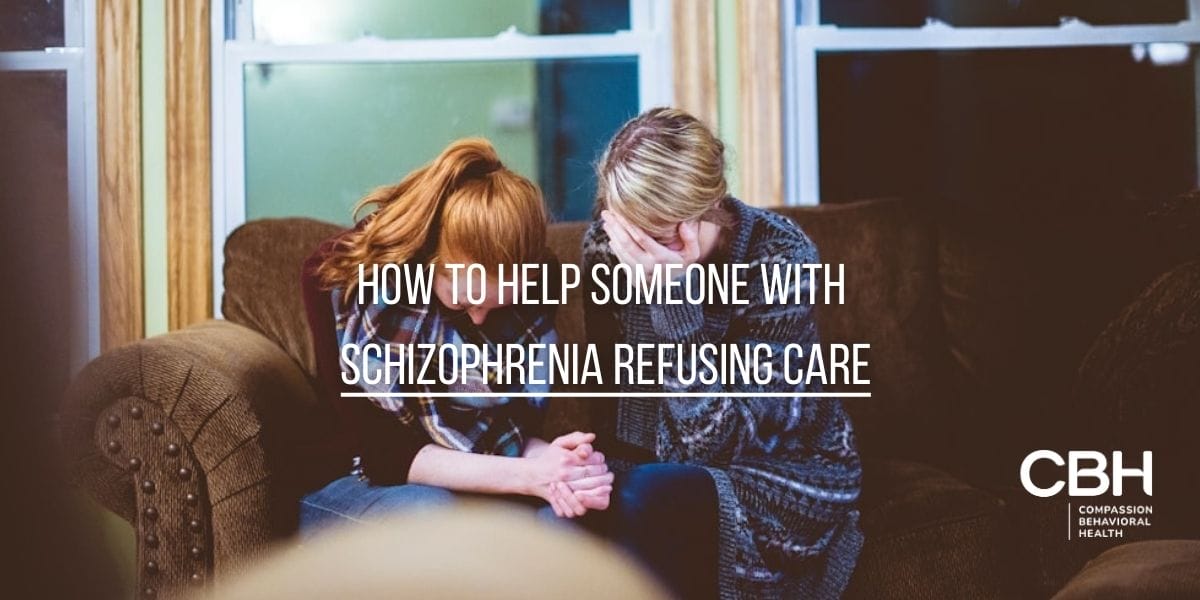Addiction can be a complex and challenging issue to understand, especially when it co-occurs with another mental health disorder such as borderline personality disorder (BPD). To grasp the intricacies of this link, it is important to first define addiction and then delve into the nature of BPD. By exploring the common symptoms, diagnosis, and impact of BPD on daily life, we can better understand how addiction and BPD intersect. We will also explore the psychological connections and role of impulsivity in this co-occurring disorder. Lastly, we will discuss different treatment approaches, emphasizing the importance of support systems in the recovery process.
What is Addiction: An Overview
When discussing addiction, it is crucial to have a clear understanding of what it entails. Addiction is a chronic brain disorder characterized by compulsive substance use or engaging in a particular behavior despite negative consequences. It affects the brain’s reward system, leading to a strong desire to repeat the behavior and difficulty in controlling impulses. Addiction can involve substances such as drugs and alcohol, as well as behaviors like gambling or excessive gaming.
The Nature of Addiction
Understanding the nature of addiction is essential in comprehending its connection to BPD. Addiction is deeply rooted in both biological and environmental factors. Neurotransmitters like dopamine play a significant role in the brain’s reward system, reinforcing pleasurable experiences. Over time, repeated substance use or engaging in addictive behaviors can lead to changes in the brain’s structure and function.

Moreover, addiction is not solely a result of biological factors. Environmental factors also contribute to the development and progression of addiction. For instance, exposure to stress, trauma, or a lack of supportive relationships can increase an individual’s vulnerability to addiction. These factors often coexist with BPD, a complex mental health disorder that significantly impacts an individual’s emotional regulation and interpersonal relationships.
Furthermore, addiction is not a one-size-fits-all condition. It can manifest differently in individuals, depending on various factors. Some individuals may struggle with substance addiction, which includes drugs, alcohol, prescription medications, and even nicotine. Others may experience behavioral addiction, which encompasses compulsive behaviors like gambling, gaming, or excessive internet use. Recognizing these different types of addiction helps us understand the diverse ways individuals may struggle with addictive behaviors.
The Impact of Addiction on Mental Health
It is important to acknowledge that addiction not only affects an individual’s physical health but also has a significant impact on their mental well-being. Substance addiction can lead to the development or exacerbation of mental health disorders such as depression, anxiety, and bipolar disorder. These co-occurring disorders can create a complex web of challenges for individuals, making it even more difficult to break free from addictive behaviors.
Moreover, addiction can have profound effects on an individual’s social and interpersonal relationships. It can strain relationships with family, friends, and romantic partners, leading to feelings of isolation and loneliness. The consequences of addiction can extend beyond the individual, affecting their loved ones and the broader community as well.
Addressing addiction requires a comprehensive approach that encompasses both physical and mental health. It involves not only breaking free from the addictive behavior but also addressing the underlying factors contributing to the addiction. This may include therapy, support groups, medication-assisted treatment, and lifestyle changes.
In conclusion, addiction is a complex and multifaceted condition that impacts individuals in various ways. Understanding the nature of addiction, its connection to mental health disorders like BPD, and the different types of addiction can help us develop more effective strategies for prevention, intervention, and treatment.
Unraveling Borderline Personality Disorder
A borderline personality disorder is a mental health condition characterized by unstable mood, self-image, and relationships. Individuals dealing with BPD often experience intense emotional highs and lows, a fear of abandonment, impulsive actions, and difficulties in maintaining stable relationships.
Living with borderline personality disorder can be a challenging and complex journey. The symptoms of BPD can vary from person to person, making it a unique experience for each individual.
One of the key aspects of diagnosing BPD is a comprehensive evaluation by a mental health professional. This evaluation takes into account specific criteria outlined in the Diagnostic and Statistical Manual of Mental Disorders (DSM-5). It is essential for accurate diagnosis and appropriate treatment planning.
4 Common Symptoms and Diagnosis of Borderline Personality Disorder
The symptoms of BPD can be diverse and may differ from person to person. These include intense mood swings, identity disturbances, chronic feelings of emptiness, self-harming behaviors, and a fear of real or imagined abandonment. A diagnosis of BPD typically involves a comprehensive evaluation by a mental health professional, considering the presence of specific criteria outlined in the DSM-5.
-
Intense Mood Swings
Living with BPD can be an emotional rollercoaster. The intense mood swings can make it challenging to navigate daily life. One moment, a person with BPD may feel on top of the world, filled with energy and enthusiasm. But in the blink of an eye, their mood can plummet, leaving them feeling empty and hopeless. These extreme shifts in emotions can be exhausting and overwhelming.
-
Identity Disturbances
Identity disturbances are another common symptom of BPD. Individuals may struggle with a sense of self, feeling unsure of who they truly are. This can lead to confusion and difficulty in making decisions or forming stable relationships. The constant search for identity can be a constant battle within themselves.
-
Chronic Feeling of Emptiness
Chronic feelings of emptiness can be debilitating for those with BPD. It’s as if there is a void that cannot be filled, no matter what they do or who they are with. This emptiness can drive individuals to engage in impulsive behaviors, seeking temporary relief from the emotional pain they experience. These impulsive actions can range from reckless spending, substance abuse, self-harm, or engaging in risky sexual behaviors.
-
Fear of Abandonment
Fear of abandonment is a pervasive fear that individuals with BPD often struggle with. They may have a constant fear that their loved ones will leave them, leading to desperate attempts to avoid abandonment. This fear can manifest in clingy behavior, intense jealousy, or even pushing people away before they have a chance to leave.
The Impact of Borderline Personality Disorder on Daily Life
BPD can have significant ramifications on various aspects of an individual’s life. Difficulties in emotional regulation can lead to intense and unstable relationships, impacting personal and professional spheres. The constant emotional turmoil can strain relationships, making it challenging to maintain stable connections with others.

Furthermore, chronic feelings of emptiness may result in impulsive behaviors and substance abuse as individuals seek relief from emotional pain or a sense of emptiness. This can lead to a vicious cycle of self-destructive behaviors, further exacerbating the challenges faced by individuals with BPD.
Individuals with BPD may find it difficult to hold down a job or maintain a consistent career path. The intense mood swings and emotional instability can make it challenging to focus and perform well in the workplace. Additionally, the fear of abandonment may lead individuals to engage in self-sabotaging behaviors that can negatively impact their professional lives.
It is important to recognize and understand the impact that BPD can have on daily life. By gaining insight into these challenges, we can develop a greater understanding and empathy for individuals living with this complex mental health condition.
The Intersection of Addiction and Borderline Personality Disorder
When addiction co-occurs with BPD, the impact on an individual’s overall well-being can be profound. Several factors contribute to this intersection, including the psychological connections between the two disorders and the role of impulsivity in driving addictive behaviors.
The Psychological Connection
Both addiction and BPD are associated with dysregulated emotions and difficulties in coping with stress. Individuals with BPD often report using substances or engaging in addictive behaviors to either numb their emotions or escape from emotional distress. As addiction progresses, the reliance on substances or addictive behaviors intensifies, further exacerbating the emotional instability characteristic of BPD.
The Role of Impulsivity
Impulsivity is a hallmark feature of both addiction and BPD. Individuals with BPD are often impulsive, acting without considering the consequences. This impulsivity can contribute to the development of addictive behaviors by facilitating experimentation, disregarding potential negative outcomes, and seeking immediate gratification. Recognizing the role of impulsivity in both addiction and BPD is crucial for effective treatment planning.
Treatment Approaches for Co-occurring Disorders
In addressing the complex relationship between addiction and BPD, a comprehensive treatment approach is essential. Integrated treatment programs that simultaneously target both disorders have shown promising results in improving outcomes.
Psychotherapy and Counseling
Psychotherapy, particularly dialectical behavior therapy (DBT), has emerged as an effective treatment approach for individuals with co-occurring addiction and BPD. DBT focuses on enhancing emotional regulation skills, distress tolerance, and interpersonal effectiveness. Cognitive-behavioral therapy (CBT) can also help individuals identify and modify unhealthy thought patterns and behaviors associated with addiction and BPD.
Medication and Medical Interventions
Medications may be prescribed to address specific symptoms of BPD or to manage underlying mental health conditions that often coexist with addiction. However, medication alone is not considered a standalone solution, and its use should be guided by a qualified healthcare professional.
The Importance of Support Systems in Recovery
The recovery journey for individuals with co-occurring addiction and BPD is strengthened by the presence of supportive relationships.
Family and Friends as Pillars of Support
Families and friends play a vital role in supporting individuals with co-occurring disorders. Understanding the challenges and educating themselves about addiction and BPD can empower loved ones to provide empathy, encouragement, and understanding during the recovery process. Families may also consider attending support groups specifically designed for families of individuals with co-occurring disorders.

Professional Support Networks
Professional support networks, including therapists, counselors, and support groups, can offer guidance, validation, and skills training. These resources provide a safe space for individuals to share their experiences, learn from others facing similar challenges, and build a foundation for sustainable recovery.
Understanding the link between addiction and borderline personality disorder requires a comprehensive examination of both disorders. By recognizing the nature of addiction, unraveling the complexities of BPD, identifying their intersections, and exploring treatment approaches, we gain valuable insight into this co-occurring disorder. Emphasizing the importance of support systems can help individuals with addiction and BPD embark on a path of recovery, healing, and improved quality of life.
Treatment for Co-Occurring Disorders at CBH
At Compassion Behavioral Health, we are committed to providing tailored treatment plans that address the unique needs of individuals with co-occurring addiction and borderline personality disorder. Our approach focuses on integrating various therapeutic modalities to offer the most effective care.
Integrated Treatment Strategies
Our treatment strategies recognize the interconnected nature of addiction and BPD. We employ a combination of psychotherapy, medication management, and lifestyle interventions to address both disorders simultaneously. This integrated approach ensures that we are not only treating the symptoms but also addressing the underlying causes and factors contributing to both addiction and BPD. Call us today to learn more about the treatment programs we offer.




